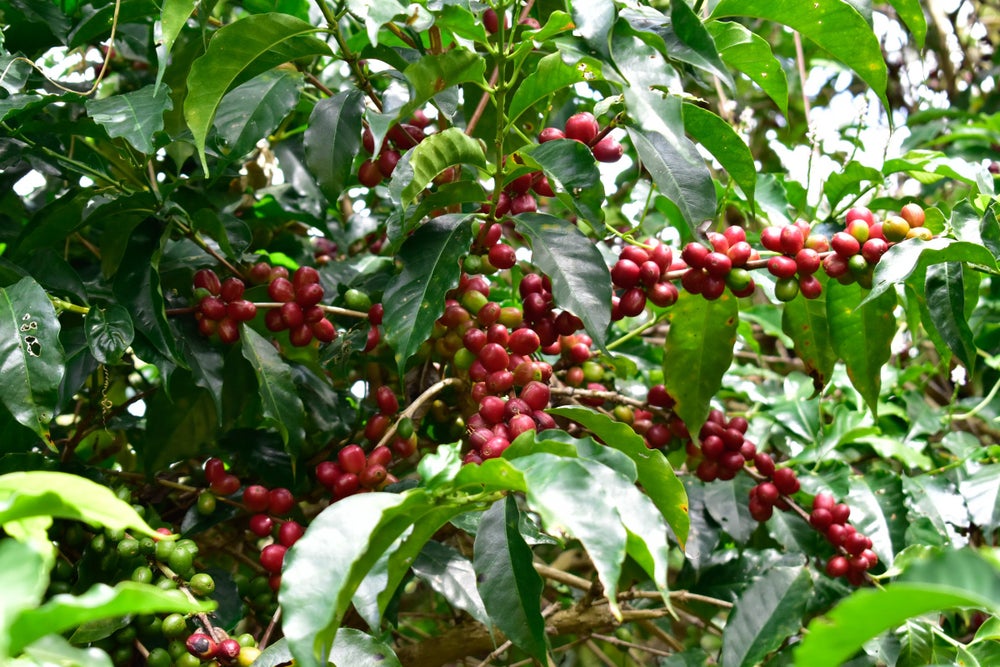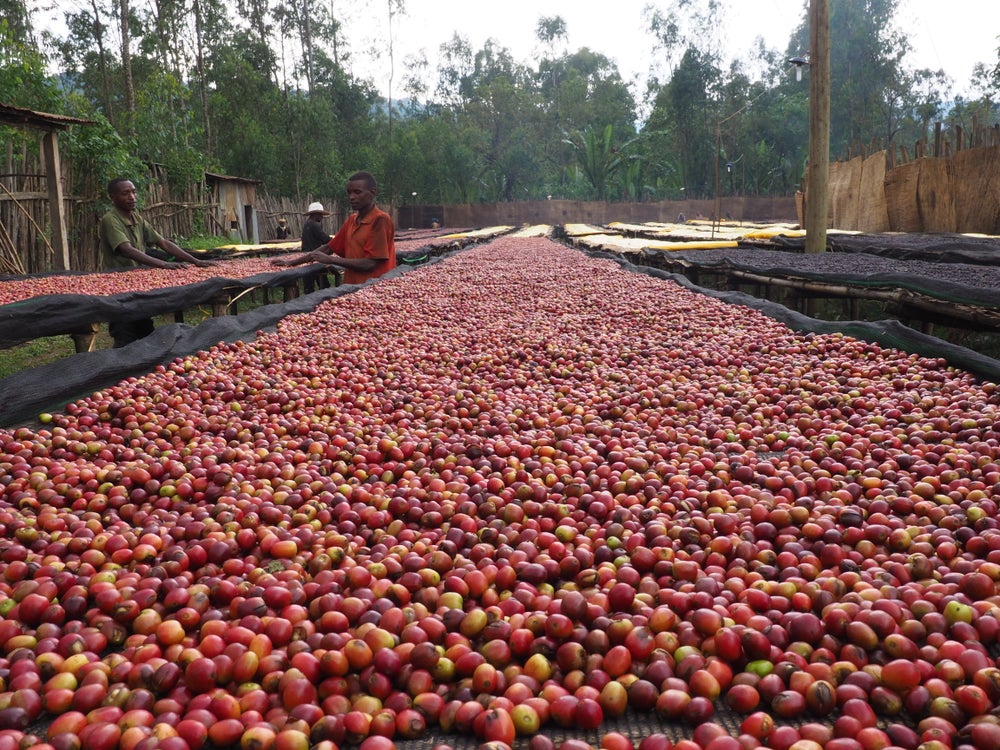About This Coffee
Zeleke Shore uses agroforestry techniques to produce both food and cash crops. Agroforestry also creates the ideal shaded microclimate for his coffee.
He’s invested in producing high quality coffees and exporting them through the Lalisaa project.As part of the Lalisaa project, Zeleke receives comprehensive agronomy support from Sucafina Ethiopia. Lalisaa farmers attend farmer trainings to learn new techniques in cultivation, harvest and processing. Designed to support farmers by shortening the supply chain and increasing their returns, the Lalisaa project works with dedicated smallholder producers to expand market access, improve quality and increase yields.
Cultivation
Coffee is intercropped with food and other cash crops using agroforestry techniques. Zeleke’s farm is organic by default. He upkeeps his farm with periodic mulching, composting and pruning to boost yields.
Harvest & Post-Harvest
Zeleke selectively handpicks ripe, red cherry and lays it to dry on raised beds. He turns cherry frequently to ensure even drying. It takes approximately 2 to 4 weeks for cherry to dry.
About Lalisaa
Lalisaa is a term used to describe something that is flourishing and growing. Our Lalisaa coffees, initiated by Sucafina staff through the Farmer Hub initiative, began with the recognition that the supply chain in Ethiopia was failing to benefit smallholder farmers or reward them for producing quality coffee.
The program encourages strong growing practices, rewards the production of quality coffee and helps farmers take control of their part of the supply chain by partnering directly with smallholders.
New farmers are onboarded each year for a training program that is intended to help farmers improve yields and quality while also accessing new markets and financial services. Farmers in the program participate in a wide range of activities including designing, and later revising, a farm management plan, accessing financing for larger farm projects and more.
Currently, Lalissa is compromised of 97 farmers located within the acclaimed coffee-producing regions of Kochere, Gedeb, Yirgacheffe, Shakiso, Bule Hora and Sidama. In addition to working with farmers to improve quality and yield, Sucafina Ethiopia is, through Lalisaa, making introductions between roasters and farmers. By bringing roasters to visit farmers and begin discussions, Lalisaa coffees are helping make connections and developing relationships between farmers and their potential clients. This will enable direct trade relationships that can benefit both farmers and roasters.
Coffee in Ethiopia
While Ethiopia is famous as coffee’s birthplace, today it remains a specialty coffee industry darling for its incredible variety of flavors. While full traceability has been difficult in recent history, new regulations have made direct purchasing possible. We’re partnering directly with farmers to help them produce top quality specialty lots that are now completely traceable, adding value for farmers and roasters, alike.
The exceptional quality of Ethiopian coffee is due to a combination of factors. The genetic diversity of coffee varieties means that we find a diversity of flavor, even between (or within) farms with similar growing conditions and processing. In addition to varieties, processing methods also contribute to end quality. The final key ingredients for excellent coffee in Ethiopia are the producing traditions that have created the genetic diversity, processing infrastructure and great coffee we enjoy today.
Most producers in Ethiopia are smallholders, and the majority continue to cultivate coffee using traditional methods. As a result, most coffee is grown with no chemical fertilizer or pesticide use. Coffee is almost entirely cultivated, harvested and dried using manual systems.

